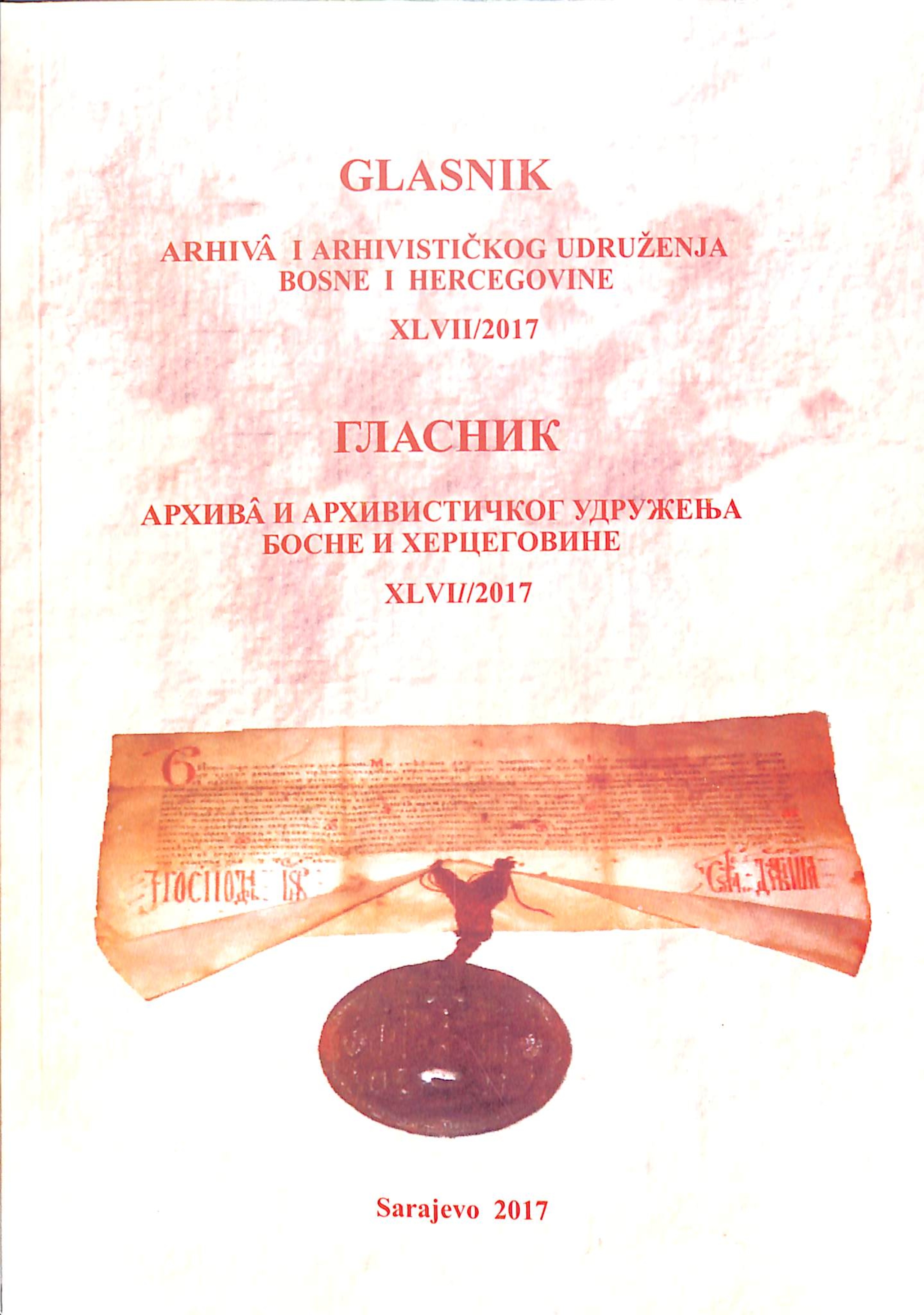KRAĆI OSVRT NA PRILIKE U TUZLI NAKON SARAJEVSKOG ATENTATA OD 28.6.1914. GODINE
A NOTE ON THE SITUATION IN TUZLA AFTER THE SARAJEVO ASSASSINATION
Author(s): Adnan BuljubašićSubject(s): Diplomatic history, Local History / Microhistory, Military history, Political history, Pre-WW I & WW I (1900 -1919)
Published by: Arhivističko udruženje Bosne i Hercegovine AUBiH
Keywords: Sarajevo Assassination; Crown Prince Franc Ferdinand; Gavrilo Princip; Sarajevo Gazette; Press; Tuzla; Mlada Bosna; Austro-Hungarian Empire; First World War;
Summary/Abstract: This paper discusses, among other things, the preparation and execution of the Sarajevo assassination and reflections of the act itself on the situation in the wider Tuzla region in Bosnia and Herzegovina, as well as a brief overview of the press of that time reacting to the very act of assassination of the crown prince Franz Ferdinand and his wife in Sarajevo on 28 of June 1914. Namely, since 1911, the danger of war appeared every year, so that no international crisis could end, without starting another. In this difficult situation any new conflict could have provoked a world war. The political crises of 1911, 1912, and 1913 did not provoke a war, but every time the peace was about to end. After the Balkan wars, the court and military circles of Austria-Hungary considered it necessary to take a preventive war against Serbia that would “erase it as a political factor”. AustriaHungary sought to remove Serbia as a political factor in the Balkans, thus creating itself a dominant position and emerging to Thessaloniki, which would open wide access to the eastern sea. As a direct cause for war, they were given a Sarajevo assassination. The assassination was carried out by members of the organization “Mlada Bosna”. This organization sought support from nationalist organizations in Serbia, among others, the National Defense, or otherwise the societies through which the members of the Black Hand were active. After all of these events, the Balkans region was again in the focus of European politics in 1914. In this area, which is a bridge between Europe, Asia and Africa, the interests of the great powers of France, Russia, Germany and Austria-Hungary were opposed, and all these mutual contradictions culminated in an assassination committed on June 28, 1914 in Sarajevo. He reflected on the overall relations in the wider region of Bosnia and Herzegovina, as well as in the wider Tuzla area, primarily due to the activities of the Secret Organization in Tuzla and their direct links with the perpetrators of the Sarajevo assassination, as well as the proximity of the Serbian border to this area.
Journal: Glasnik arhiva i Arhivističkog udruženja Bosne i Hercegovine
- Issue Year: 2017
- Issue No: 47
- Page Range: 273-289
- Page Count: 17
- Language: Bosnian, Croatian, Serbian

